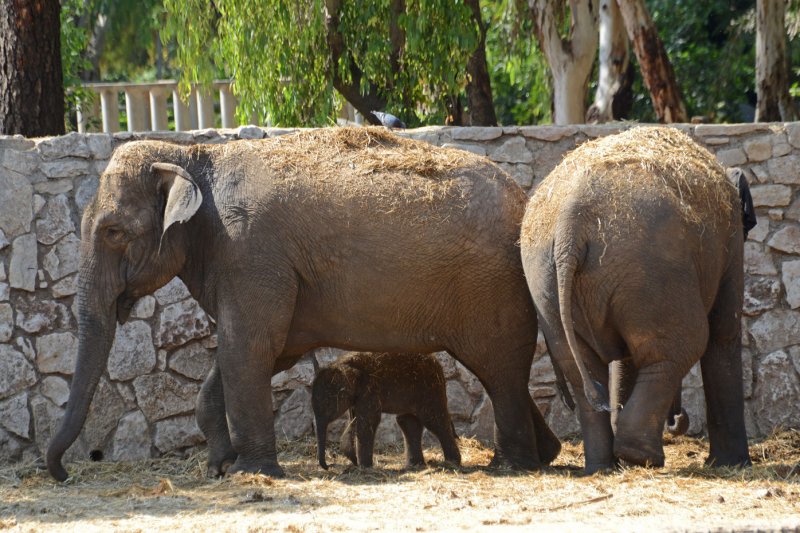Latangi, a six day old Asian elephant calf, walks with her mother La Belle and grandmother La Petite in the Ramat Gan Safari Park near Tel Aviv, Israel, August 7, 2013. Asian elephants are an endangered species. (File/UPI/Debbie Hill) |
License Photo
ATLANTA, Feb. 18 (UPI) -- Putting an arm around a friend, telling him or her that everything is going to be okay -- it's what humans might call an act of empathy or consolation. But it's not just a human behavior; other animals do it too.
New research shows that Asian elephants use touching and vocalization to offer solace to their friends in distress. Biologists have known elephants to be highly intelligent and empathetic creatures, even going so far as to mourn and take revenge after a herd member is killed, but consolation behavior had never before been systematically observed.
"Humans are unique in many ways, but not in as many ways as we once thought," explained lead author Joshua Plotnik, who began working with elephants while earning his Ph.D. at Emory University in Atlanta. Plotnik earned his degree in 2010, and while there he conducted studies showing elephants can recognize themselves in a mirror and work together to problem-solve.
This most recent study -- the details of which were published in the open access journal PeerJ -- involved the observation of 26 captive Asian elephants at a 30-acres camp in Thailand.
Researchers observed that when an elephant showed signs of distress those around him or her would regularly approach, and put their trunks in the troubled elephants mouth -- their version of a handshake or hug. "It's a very vulnerable position to put yourself in, because you could get bitten," explained Plotnik. "It may be sending a signal of, 'I'm here to help you, not hurt you.'"
Others would offer high-pitched chirping sounds, a vocalization, Plotnik says, elephants don't exhibit while alone.
Consolation behavior had previously only been observed in populations of great apes, canines and certain types of birds, including crows and magpies.
"This study is a first step," Plotnik said. "I would like to see this consolation capacity demonstrated in wild populations as well."
Unfortunately, both Asian elephants and African elephants are endangered, making observation in the wild increasingly difficult.
[link:PeerJ: "https://peerj.com/articles/278/" target="_blank"}]















